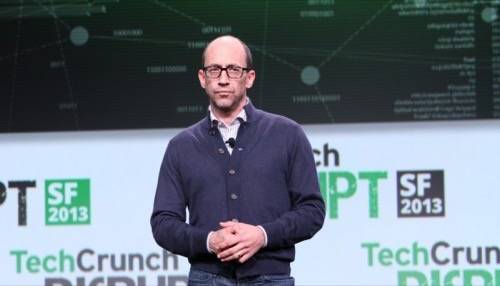
Twitter has filed papers to take the company public. This changes everything, right?
Wrong.
It’s a momentous milestone for the six-year-old message-broadcasting company, to be sure, and a credit to the steady leadership of CEO Dick Costolo, who followed two of the company’s founders in that role. But for users and developers, the IPO doesn’t mean much.
Change Is Good—But Simplicity Is Better
As a product, Twitter won’t change much following a public stock offering. The 140-character format of a tweet is set in stone, though Twitter has figured out clever ways to associate images, videos, and other forms of media with these short posts. Recent changes, like a more intelligent display of tweets sent as replies in the form of a conversation, seem more like obvious tweaks than big changes.
And while Twitter has grown more sophisticated in selling advertisements, ads on Twitter come in the form of tweets, albeit more prominently displayed, which keeps things simple. Where Twitter will improve its advertising products is in how they’re targeted to particular users—for example, in conjunction with live events and television shows.
The Platform Is Already Locked Down
Ah, but won’t Twitter crack down on developers after an IPO, as it looks for new ways to make money? Well, that’s already happened.
While third-party apps for reading tweets face severe restrictions, developers are relatively free to build apps that send content into the Twittersphere. Analytics toolmakers also are making a mint.
Some developers may still be unhappy that Twitter won’t let them create the apps they’re dreaming of, but the boundaries are better defined than they were in Twitter’s early days, giving less grounds for complaint.
Twitter Will Keep Snapping Up Startups
Right before it revealed its SEC filing, Twitter announced it had bought online-advertising startup MoPub in an all-stock deal. It’s been on an acquisition spree for a while, buying up startups like Vine, the short-video broadcasting service, and Crashlytics, maker of tools for mobile-app developers.
Between the cash Twitter has raised from investors and the high valuation placed on its privately traded shares, it already has the financial firepower to buy startups to expand its business and its pool of talent. An IPO will accelerate that trend, but it won’t change its direction.
Investors Will Get Rich
Twitter’s venture-capital investors, like Union Square Ventures and Charles River Ventures, will profit enormously from an IPO (and from their patience in not selling). But it’s their job to make money for their own investors—pension funds and other large institutions that need to diversify their investment portfolios. While it’s great that VC firms are making money, it doesn’t really change much for the rest of us.
Twitter Will Stay Independent
As a publicly traded company, Twitter has a better chance of staying independent. But it got too big to buy a while ago, based on the valuation its private investors have assigned to it.
Over the years, Facebook and Google made stabs at buying Twitter; there were talks with others, like Yahoo, that never went particularly far. That was billions of dollars ago. At this point, it’s too hard for Twitter to sell. Its private valuation is estimated at between $10 billion and $14 billion; it will likely be worth more than that as a public company.
At the same time, that’s way too much money for any public company answerable to its shareholders to spend on an acquisition, given the state of Twitter’s advertising revenues. (Estimates vary in the range of $300 million to $600 million this year; we know that to file confidentially with the SEC as an emerging-growth company, Twitter’s annual revenues must be less than $1 billion.) If Twitter will sell, it must first grow into the valuation eager investors want to assign to it.
What Will Change
The one factor that’s hardest for Costolo and the rest of Twitter’s executives to manage will be its people. AllThingsD reports that some Twitter employees recently received new stock grants to keep them at the company well past an IPO.
Some engineers, product managers, and salespeople who enjoy the wild ride of a startup simply won’t want to stay at a company of the size a publicly traded Twitter will inevitably become. Were Twitter to find some way to delay its stock-market debut, they would likely leave anyway, as Twitter grew; that’s been happening for some time, even as Twitter hires employees by the hundreds.
One thing to watch is Twitter’s defense of its users’ free speech against regulators and spies. The departure of longtime general counsel Alexander Macgillivray was disturbing to some, though he wrote that he “couldn’t be happier” with his replacement, Vijaya Gadde.
If a public Twitter wavers in defense of its users against government agencies, employees could rapidly grow disillusioned. And that, in turn, could weaken the company’s growth.
The good news is that going public may be the best defense Twitter has against such pressure. Acquired by a larger entity, Twitter might fold to protect some other aspect of the parent company’s business. As long as those who buy Twitter’s stock understand the legal risks it faces in championing free speech around the globe, little should change just because Twitter acquires a ticker symbol.
Lead photo of Twitter CEO Dick Costolo by Madeleine Weiss for ReadWrite
















